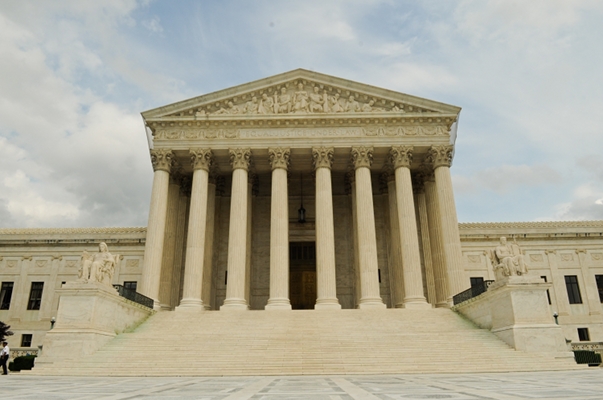In the wake of Thursday’s Supreme Court ruling limiting the scope of a key federal anti-corruption statute, white-collar defense lawyers are salivating at the chance to challenge some of the biggest public corruption cases in recent memory — from Gov. Don Siegelman in Alabama to Gov. Rod Blagojevich in Illinois to New York state Senate Majority Leader Joe Bruno to the myriad figures in the Jack Abramoff saga.
As Josh wrote on the editors’ blog, the impact of the 6-3 ruling — with the three dissenting justices going further than the majority and arguing that the law should be struck down entirely — is likely to be vast.
The honest services fraud statute, passed by Congress in 1988, makes it a crime to scheme to “deprive another of the intangible right of honest services.” The oft-cited problem with the law is its ambiguity, which gave prosecutors wide latitude to decide who was in violation.
The court ruled yesterday that the law is too vague and that therefore the statute can cover “only bribery and kickback schemes.” That means prosecutors must show a quid pro quo.
An example of the ambiguity in the law as it originally stood is a case that the Supreme Court kicked back to a lower court as part of it’s ruling Thursday: Bruce Weyhrauch, a former Alaska state legislator, was indicted in 2007 for failing to disclose he was seeking work with an oil company which had matters before the legislature, and on whose instructions he changed a vote on a tax bill.
The full ruling is here. Let’s take a look at some of the reaction.
First up, the AP has a useful list of notable recent honest services fraud cases — most of which, like the cases of former congressmen Randy “Duke” Cunningham and William Jefferson, will be very familiar to TPMmuckraker readers.
Roll Call looks at what this means for those who pleaded guilty to honest services fraud in the Abramoff saga:
Attorneys for two former Congressional aides who had accepted plea deals said Thursday they would review the Supreme Court’s decision.
…
Among those who have pleaded guilty to a variety of corruption charges, including honest services fraud, but have yet to be sentenced owing to their ongoing cooperation with Justice Department prosecutors are: John Albaugh, chief of staff to then-Rep. Ernest Istook (R-Okla.); Todd Boulanger, a “Team Abramoff” lobbyist and former aide to then-Sen. Bob Smith (R-N.H.); James Hirni, a Team Abramoff lobbyist and former aide to then-Sen. Tim Hutchinson (R-Ark.); Michael Scanlon, an aide to then-Rep. Tom DeLay (R-Texas) who founded a public relations firm; and Tony Rudy, a Team Abramoff lobbyist and former DeLay aide.
Paul Clement, a solicitor general under President George W. Bush, drills down at Slate on the interplay between the majority ruling and the dissent:
[T]he back-and-forth between Ginsburg’s majority opinion and Scalia’s dissent really goes to the heart of the proper role of the court in responding to problematic legislation. Every justice agreed that the phrase Congress actually used–“the intangible right to honest services”–was impermissibly vague. All nine would have also agreed that terms like bribery and kickback are clear, and are not normally mere synonyms for “the intangible right to honest services.”
The Wall Street Journal Law Blog interviewed Robert Plotkin of McGuireWood’s SEC Enforcement group about how the ruling will affect what gets introduced at trial:
[The statute has] been popular because it’s so malleable. When it looks like someone has done something unethical, prosecutors can use honest-services fraud to justify introducing evidence of whatever the alleged unethical behavior was, such as failing to disclose a conflict of interest. The government would have to work harder to get in that type of evidence under other theories.
The New York Times editorial board calls for better written anti-corruption laws:
Justice Ginsburg practically invited Congress to speak more clearly and find new ways to criminalize self-dealing. But she made it clear, in a footnote, that it would have to do so with real specificity. It is not enough, she wrote, to say that an employee cannot further his own undisclosed financial interest while purporting to act in the interest of others. Any new law also would have to make clear how significant the conflict of interest has to be before it amounts to fraud, she said, and would have to specify how these disclosures should be made.
The watchdog group Citizens for Responsibility and Ethics in Washington told Roll Call that it favors expanding a law that bars “executive branch employees … from using their official positions to affect their personal financial interests.” But there’s not much indication yet from members of Congress about whether or how Congress might respond to the court’s ruling.









